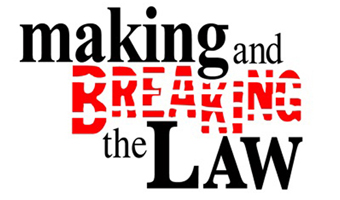The faculty affiliated with the Center for Law, Justice & Culture are all interested in connections between law and cultural, political, and social life. Exploring those connections often falls under law and society studies. For Dr. Jennifer Fredette, Assistant Professor of Political Science and one of the newest faculty members of the CLJC, law and society studies are “about going beyond texts themselves.”
Fredette researches questions of legal identity, citizenship most recently with respect to religious and racial minorities in France. Right now she’s working on a project examining legal mobilization of Muslims in France.
There are two strategies French Muslims are using right now, she says. The first strategy is attacking discriminatory laws. While these laws, such as banning the niqab (face veil), don’t explicitly target Muslims in their text, in practice they are discriminatory. The second strategy Fredette identifies is attacking hate speech. “I’m realizing that this is a really interesting strategy because they’re getting the term ‘Islamophobia’ in the public sphere,” she says.
Fredette sees the use of the word Islamophobia as key to this second strategy. “We’ve seen politicians and intellectuals who say Islamophobia isn’t a thing.They say we’re allowed to criticize a religion; we’re not criticizing a people. However, this can be a problem because it’s very easy to go from criticizing an organized religion to criticizing its practitioners.”
Beyond looking at Muslims in France, Fredette hopes to start a project about law, citizenship, and identity in the French Caribbean, eventually to be compared with the British Caribbean. These locations still hold the legacies of their colonial past, with slavery having created dynamics that accentuate the politics of difference in society. ”The thing I’m interested in is not just how British and French ideas of the politics of difference translate over to the Caribbean but also how different legal norms and ideas about difference transfer back, if ever,” she says.
A comparative perspective is at the core of a class Fredette hopes to teach some day, focused on different national and supranational legal systems. In this kind of comparative law course, she envisions students choosing a state to focus a research project on exploring the connections between political institutions and a high court in that state.
This kind of class would expose students to law and society studies. Fredette sees this perspective, focused on questioning the legal system, as essential for students interested in practicing law. “I think that it will only be a matter of time before students who become mainstream legal practitioners will start asking themselves questions about the law that are bigger than what you would learn in law school,” she says.




















Comments